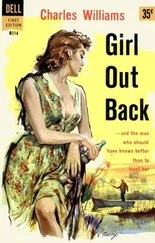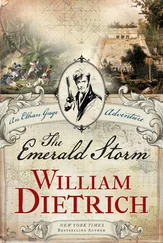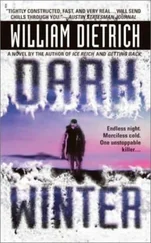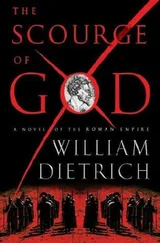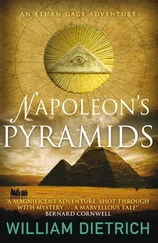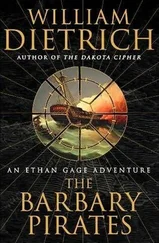William Dietrich - Getting back
Здесь есть возможность читать онлайн «William Dietrich - Getting back» весь текст электронной книги совершенно бесплатно (целиком полную версию без сокращений). В некоторых случаях можно слушать аудио, скачать через торрент в формате fb2 и присутствует краткое содержание. Жанр: Триллер, на английском языке. Описание произведения, (предисловие) а так же отзывы посетителей доступны на портале библиотеки ЛибКат.
- Название:Getting back
- Автор:
- Жанр:
- Год:неизвестен
- ISBN:нет данных
- Рейтинг книги:3 / 5. Голосов: 1
-
Избранное:Добавить в избранное
- Отзывы:
-
Ваша оценка:
- 60
- 1
- 2
- 3
- 4
- 5
Getting back: краткое содержание, описание и аннотация
Предлагаем к чтению аннотацию, описание, краткое содержание или предисловие (зависит от того, что написал сам автор книги «Getting back»). Если вы не нашли необходимую информацию о книге — напишите в комментариях, мы постараемся отыскать её.
Getting back — читать онлайн бесплатно полную книгу (весь текст) целиком
Ниже представлен текст книги, разбитый по страницам. Система сохранения места последней прочитанной страницы, позволяет с удобством читать онлайн бесплатно книгу «Getting back», без необходимости каждый раз заново искать на чём Вы остановились. Поставьте закладку, и сможете в любой момент перейти на страницу, на которой закончили чтение.
Интервал:
Закладка:
"What's your name?" he asked.
She considered. "Is that important?"
He thought a moment. She was expecting an intelligent reply. "Some cultures named people for what they were, like Smith or Baker," he said. "Some thought you became your name. Some were named for things observed at birth."
She shrugged. "It's Raven."
"Raven…?"
Her caution was understandable. "That's all you need to know."
"Okay. Named for your hair?"
She smiled. "If I was named for what I looked like at birth my name would be Prune. Raven was a creature of legend. Smart, elusive."
"Like you?"
"Maybe. You said we become our names."
He nodded. "And what do you do?"
"I think a better question is why do you do."
"Why?"
"Think about it." She turned to begin running again.
"Wait!"
She glanced over her shoulder. "Yes?"
"I want to see you again."
"So run. Maybe we'll meet."
"No, see you where we can talk."
She turned to face him. "Are you asking me on a date?"
The question was so challenging he thought she was about to say no. "There's a good new restaurant…"
"Date restaurants are overpriced and pretentious."
Jesus. This was a hard one. "Well, I know a club…"
"I don't like clubs. It's too loud to hear, and when the music stops there's nothing worth hearing."
He took a breath. "What do you like?"
She looked at him, judging in a way he didn't entirely like, and for a moment something in her eyes passed like a shadow. "I like cyberspace," she finally said. "People have time to think before they communicate, and they have the anonymity to be themselves."
"I have to talk to you by e-mail?"
She laughed. "I like exploring."
"I do too. The cyber underground."
"The what?"
"Free thinkers on the net. They question things. Lead you to new places." His offer was implicit: I can show you.
"Ah." She nodded but seemed unimpressed. "I've heard of that, I think. Unhappy people."
"Independent people."
She studied him again, his clothes stained with sweat, his manner betraying an underlying frustration, and came to a decision. "How about a different underground?"
"What do you mean?"
"Do you know the Pitney Tube stop?"
"Yes…"
"Meet me there tonight at nine."
"Tonight?"
"Yes." She smiled encouragingly. "Come hungry. Bring a light."
"A light? For what?"
But she was already sprinting for a corner before he had a chance to consider or change his mind. "Bring a sense of adventure!"
A sense of adventure. Daniel slipped off his opti-glasses, rocked back in his cubicle chair, and stared up at the acoustical cones which jutted like stubby beige stalactites from the ceiling of Level 31. When had he lost his? When he realized the planet was so thoroughly mapped that a palmtop and satellite could pinpoint your location to within a few feet of every rock and tree? When he was cut from enough teams that he went from playing sports to watching them? When he was bruised in enough relationships that he went from looking for commitment to avoiding it?
Adventure happened to other people. He'd realized by age fourteen that he was never going to be an astronaut or mineral aquanaut. Those anointed were special, their talent and selection by means mysterious and exclusive. How had their lives taken such turns? He was repeatedly urged to be ordinary, to fit in, to join groups. So he'd earned grades that were good but not special, made friends who were fun but not close, bought toys that were expensive but not meaningful. Taught that the universe was trillions of miles across and billions of years old, he came to the private conclusion that it probably really didn't matter then whether he, Daniel Dyson, dust mote of Creation, turned left or right. He went to school because you were supposed to, and got a job because you were supposed to do that: it was not that he wouldn't consider an alternative but simply that he had trouble conceiving of one. Everyone did what he did, and took more pleasure than he could in dressing to the latest fashion, embracing the latest fad, and being hip to the latest stars, food experiments, and electronic gadgets. In a mammoth world of migratory careers and anonymous neighborhoods, conformity was the route to community: it was how one belonged. All this left him feeling detached instead of included: the crowd would cheer when he would have preferred to observe in contemplative silence. Daniel had learned he could frighten himself with a thrill ride, excite himself with erotica, dare himself with adventure vacations, and exhaust himself in a gymnasium workout. But life? That, it seemed, eluded him. He was living his life waiting for life to show up.
His parents didn't sympathize with this dissatisfaction. "Life?" his father had responded scornfully to his complaints of aimlessness. "Life? Real life is getting kicked in the goddamned teeth. Life- for most of that goddamned history you study without seeming to learn a goddamned thing- was beating your brains out without reward: coming home so damned tired you can hardly sleep because of the way your body ached, and then getting up the next day to do it all over again. Life was getting sore and sick and old and passed over, or dying young. That was what real life was about. Life was losing. So now we have a system where you don't have to lose, where people are comfortable, where things don't blow up or break down or go off in unpredictable directions- and you're complaining you're missing something? What you're missing is sorrow. What you're missing is despair." When his father proclaimed this, repeating something scripted, his habitual quiet desperation would give way to the kind of choleric excitement that eventually killed him. Life? Who needs it? And then his father had dropped dead.
Daniel stood up from his desk, stretching his back. The room was dim, the flickering of his colleagues' opti-glasses illuminating it like the cold firelight of an old television. There was the ambient hum of the hive. The head of a supervisor, round and featureless behind the smoked glass of one of the periphery offices, rose briefly in curiosity at his movement and then went down again, as placid as a grazing cow. Balloons floated above one cubicle, marking a birthday for Cynthia Eaton. Life's passages. On a table by the water cooler was a half-eaten cake.
What was missing, Daniel should have answered, was purpose. He'd succeeded in every task scheduled for him- school, a job, a homeexcept deciding for himself what success was. His father claimed to have suffered no such misgiving, accepting his corporation's goals. He'd lived anxious, died young, and seemingly been proud of the whole sorry progression of it. At least he'd defended typical existence with exasperated doggedness, believing it the path to the least pain. In actuality, Daniel envied his father's sense of belonging. But he didn't share that sense. He'd been excited by his first days at Microcore like any new employee, relieved that the trauma of job interviewing was over and anxious to get on with the business of finding an apartment, acquiring possessions, and maybe even hunting for a wife. Yet it seemed to him that the more the company spoke about opportunity, the less it offered, and the more it preached unity and profit goals, the more he felt alienated by its desire to absorb him and all his energies- to suck his life, whatever it should be, into the greater life of its pyramid.
Maybe he was too selfish. Maybe the others saw something he couldn't perceive. Perhaps that explained their enthusiasm. He didn't know.
Like many people, Daniel was a voyeur of lives that seemed more interesting than his own. He enjoyed cyber videos, movies, books, and music. He'd been bored by any practical course of study at university and so indulged himself with a pursuit of history: what his father called "the irrelevant weight of the past." There he could go back to a time when the world was still unmapped, and wit and skill were requirements for advancement. It seemed to him that choices were simpler then: to bend sail onto spars, blaze a trail, fight a battle. Life was more romantic, with a clearer trajectory of youthful ambition and mature accomplishment. At Microcore, things were backward. The young were promoted over the old. Enthusiasm was valued more than experience, provided loyalty was sufficiently demonstrated. The key to success was unity toward corporate goals and social cultivation. Daniel resented these requirements because he wasn't any good at them. He mocked the system because of his own lack of confidence at ever being able to succeed in it. He constantly betrayed himself.
Читать дальшеИнтервал:
Закладка:
Похожие книги на «Getting back»
Представляем Вашему вниманию похожие книги на «Getting back» списком для выбора. Мы отобрали схожую по названию и смыслу литературу в надежде предоставить читателям больше вариантов отыскать новые, интересные, ещё непрочитанные произведения.
Обсуждение, отзывы о книге «Getting back» и просто собственные мнения читателей. Оставьте ваши комментарии, напишите, что Вы думаете о произведении, его смысле или главных героях. Укажите что конкретно понравилось, а что нет, и почему Вы так считаете.

